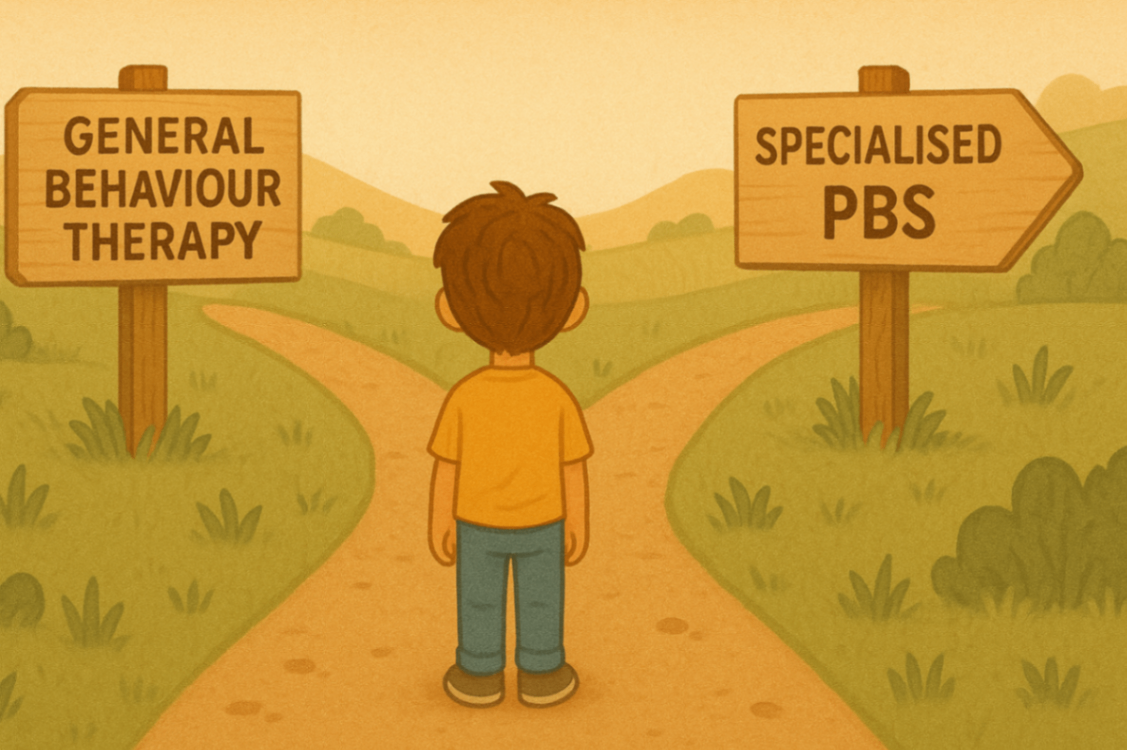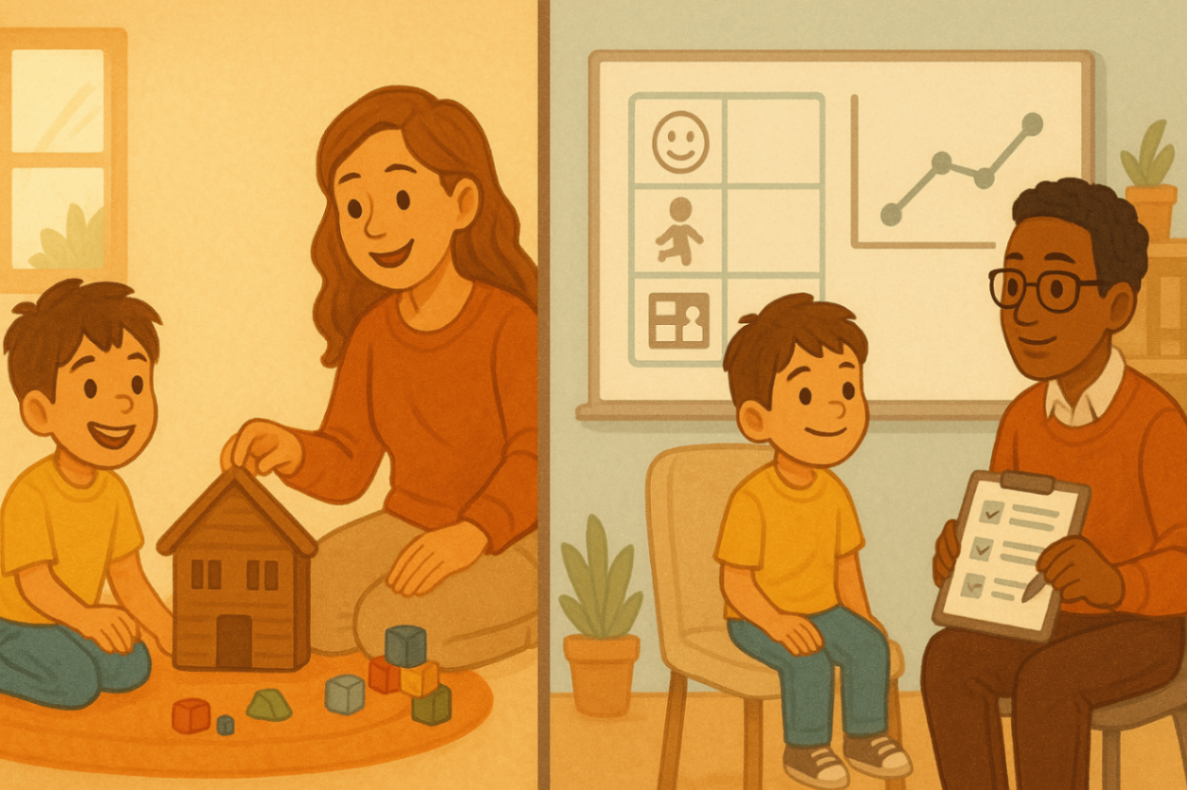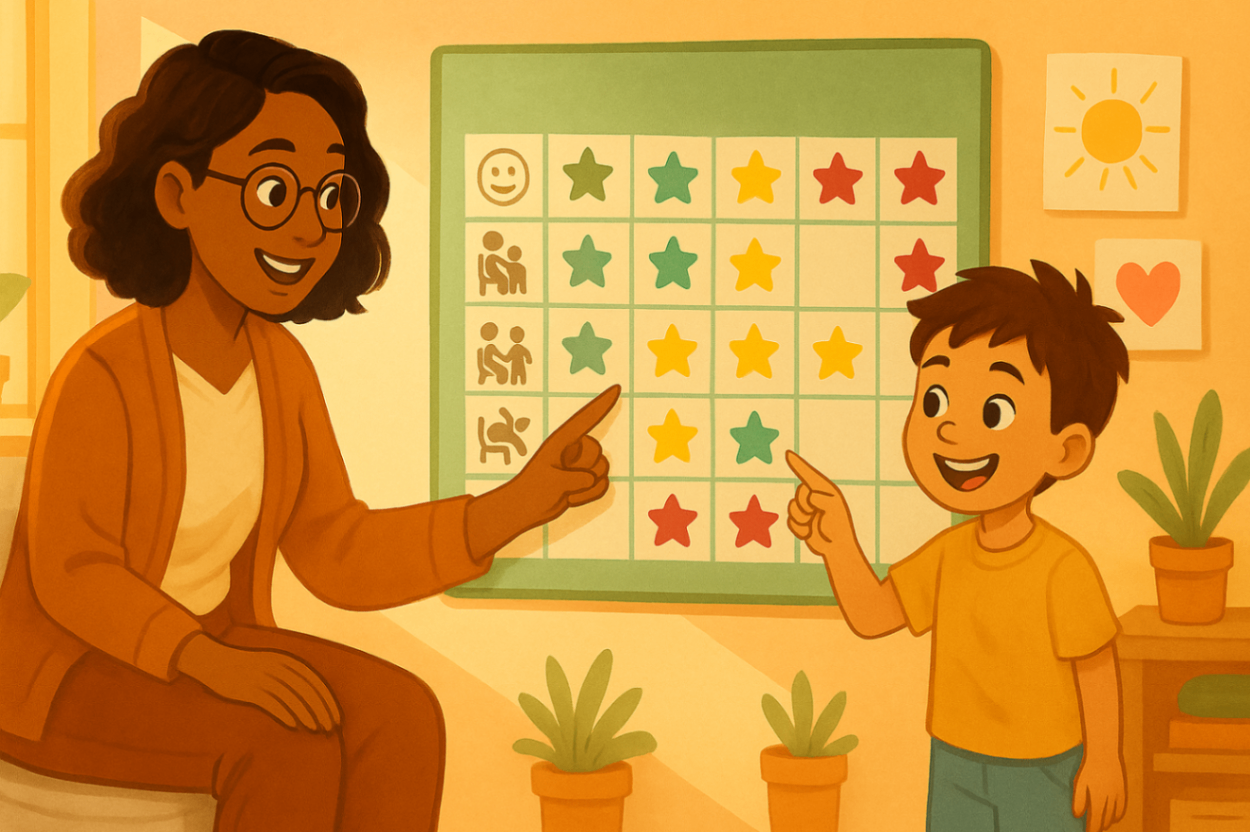
specialised behaviour support vs general behaviour therapy
19 June, 2025
Updated on November 8, 2025
Deciding between “general behaviour therapy” and “specialised behaviour support” can feel confusing — yet this distinction matters significantly when working under the National Disability Insurance Agency (NDIA). At daar in Liverpool, our mission is to help families understand which approach best fits their child’s needs, so the right support is chosen and delivered effectively.
Key Highlights
-
Specialised Positive Behaviour Support (PBS) focuses on enhancing quality of life and reducing challenging behaviours through tailored strategies.
-
General Behaviour Therapy leans on broad behaviour management strategies to improve emotional and social development.
-
PBS is delivered by trained NDIS behaviour support practitioners and includes collaborative plans with stakeholders.
-
Both therapies differ in their approach to restrictive practices and teaching new skills to replace behaviours of concern.
-
Choosing the right option depends on individual needs, communication strategies, and NDIS funding suitability.
What Is Specialised Behaviour Support? PBS vs General Behaviour Explained
 If your child shows concerning behaviours, selecting the right help is essential. General behaviour therapy and PBS have different approaches to improving situations. NDIS behaviour support services provide tailored plans for children needing extra assistance, involving parents, family members, and support workers in implementation. Understanding the pros and cons of each method enables effective collaboration between caregivers and therapists. Choosing therapy that aligns with your child's needs enhances support, strengthens relationships, and improves everyone's mental health.
If your child shows concerning behaviours, selecting the right help is essential. General behaviour therapy and PBS have different approaches to improving situations. NDIS behaviour support services provide tailored plans for children needing extra assistance, involving parents, family members, and support workers in implementation. Understanding the pros and cons of each method enables effective collaboration between caregivers and therapists. Choosing therapy that aligns with your child's needs enhances support, strengthens relationships, and improves everyone's mental health.
What Is General Behaviour Therapy?
General behaviour therapy is often used when children experience emotional or behavioural challenges such as social interaction difficulties, anxiety, or light-to-moderate behavioural concerns. The goal is to improve daily behaviours, emotional regulation and social skills.
In this type of therapy:
-
A qualified therapist works one-on-one with the child to teach new skills, improve emotional responses, and build social-interaction capacity.
-
Techniques may include structured behaviour management, reinforcement strategies, and direct teaching of social and self-management skills.
-
It is a solid option for children who do not require highly specialised interventions, and whose behaviours of concern are less complex or high risk.
What Is Specialised Behaviour Support (PBS)?
Specialised Behaviour Support — often referred to as PBS — is a more intensive, systematic and evidence-based framework designed for children who display behaviours of concern, are at risk of restrictive practices, or require a multi‐setting, coordinated intervention.
Key elements of PBS include:
-
A detailed Functional Behaviour Assessment (FBA) to identify the function of behaviour and its triggers across home, school and community settings.
-
A comprehensive behaviour support plan that includes environmental modifications, replacement skills, family training, school collaboration and long-term monitoring.
-
A focus on enhancing quality of life, reducing the need for restrictive practices, and teaching sustainable behaviours that transfer across environments.
Families choosing PBS require a practitioner who collaborates with multiple stakeholders — therapists, educators, family members — to ensure consistency and durable outcomes.
Key Differences Between PBS and General Behaviour Therapy

|
Aspect |
General Behaviour Therapy |
Specialised Positive Behaviour Support (PBS) |
|---|---|---|
|
Focus |
Broad emotional regulation and behaviour management plans |
Manualised, function-based intervention for behavioural concerns |
|
Practitioners |
Mental health therapists |
NDIS-trained PBS practitioners |
|
Restrictive Practices |
Rarely used |
Addresses and modifies restrictive practices |
|
Collaboration |
Moderate—parents and child |
Robust—includes stakeholders such as teachers, caregivers |
|
Skill Development |
Limited social skill development |
Comprehensive, new skill acquisition strategies |
PBS suits individuals requiring sustained collaboration among caregivers and therapists to address high-impact behavioural struggles over time. The intensive and long-term scalability differentiates it from easier behaviour correction plans in conventional therapies.
Factors to Consider in Choosing Between PBS and General Behaviour Therapy

Choosing the right framework depends on your child’s individual needs. If your child deals with mild behavioural issues, they may get enough help from general behaviour therapy. This type places focus on communication strategies and learning to control feelings. But, kids who have more complex challenges often need help from PBS because it offers a plan made for them.
When to Choose Which Approach
-
If your child is showing mild to moderate behavioural issues, is engaged in daily life with few disruptions, and simply needs skill-building, then general behaviour therapy may be appropriate.
-
If your child’s behaviour is frequent, high risk, requires specialist intervention, or there are safety considerations or restrictive practices involved, then Specialised Behaviour Support (PBS) is the more suitable path.
How NDIS Impacts Choice of Support
Under the NDIS, behaviour support is funded via the Capacity Building – Improved Relationships category when a child requires specialist support due to behaviours of concern. When families understand the difference, they can ensure that their plan includes the correct category of funding and they engage with the appropriate provider type.
Why Families in Liverpool Choose daar for Behaviour Support
At daar, we deliver both general behaviour therapy and specialised PBS depending on your child’s needs. Serving Liverpool and surrounding suburbs such as Casula, Moorebank, Prestons and beyond, our team:
-
Assesses your child’s needs carefully and recommends the right approach
-
Provides registered PBS practitioners and therapists under the NDIS framework
-
Works collaboratively with family, education and allied health teams for consistent supports
-
Offers home, school and clinic-based sessions with a strong focus on measurable outcomes
Book a Consultation Today
If you’re unsure whether your child needs general behaviour therapy or a specialist PBS plan, book a consultation with daar in Liverpool today. We’ll help you choose the right approach and support your journey under the NDIS for meaningful, lasting change.
Frequently Asked Questions
Is Specialised Positive Behaviour Support only for children with disabilities?
No, PBS is not just for kids with disabilities. Positive behaviour support, or PBS, helps anyone who shows behaviours that worry others. The NDIS says these can be anyone with a need. Support workers, families, and other stakeholders can work together. They can make plans that welcome all, and help everyone.
How does NDIS funding affect access to behaviour support services?
NDIS funding plays a big part in getting behaviour support services. It gives money just for these special kinds of help. This lets people get the support they need from experts who know how to handle their own behaviour issues and promote positive outcomes. With NDIS, they are more likely to work with the right professionals to help with behaviour. This is a good way to get better and manage things well.
How do therapy goals differ between PBS and general behaviour therapy?
Therapy goals in positive behaviour support (PBS) are about making life better and helping people take part in daily life in a real way. This is different from most behaviour therapy, which often tries to get rid of certain behaviours and focuses a lot on fixing symptoms, not really on the whole person. PBS is more about what each person needs and being ready ahead of time, so people can have better quality of life. With positive behaviour support, the goal is always to help the person do well in their life, not just stop problems.
.svg)

















